Pope Francis’s Meeting With President Trump: 5 Takeaways
BY CHRISTOPHER G. KERR | May 25, 2017
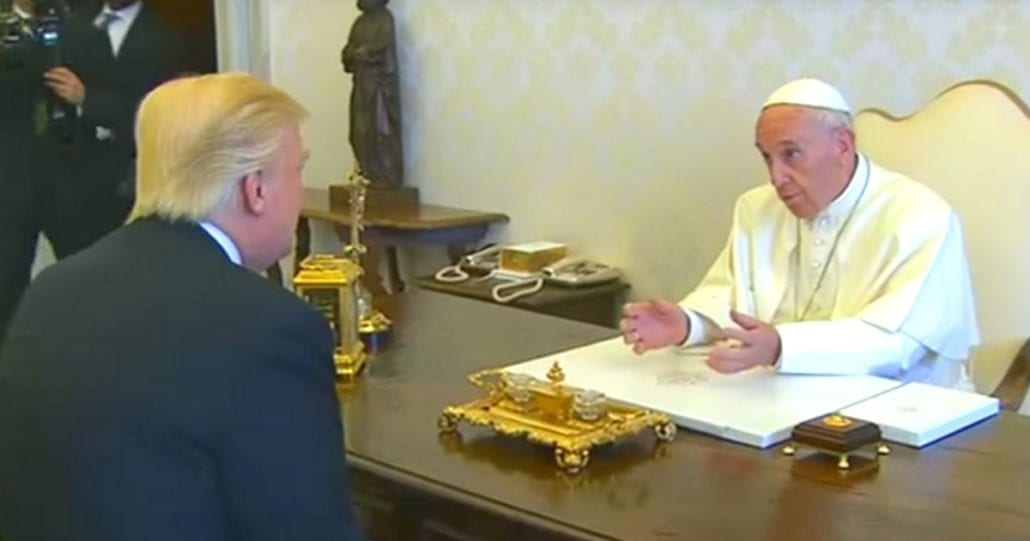
President Trump and Pope Francis meet at the Vatican on May 25, 2017. [SOURCE: Vatican TV, via YouTube]
Documents Make Great Gifts
If you are not sure what to get Dad for Father’s Day, you might take a page from Pope Francis and President Trump’s book—get them a book, or a document that has been published into a book. Both men exchanged inspiring documents during their meeting today.
Pope Francis gave the president a copy of his message for World Peace Day 2017 and told him, “I signed it personally for you.” In addition, he gave Trump copies of three of his papal documents: Amoris Laetitia, Evangelii Gaudium, and Laudato Si’, his well-known encyclical on the environment. The inclusion of Laudato Si’ is significant in light of President Trump’s declaration that his administration will make a decision as to whether the U.S. will sustain its commitment to the Paris Climate Agreement ratified by nearly 150 countries worldwide in 2015.
Pope Francis gave President Trump a copy of his encyclical on climate change https://t.co/znAgTgHLFC
— TIME (@TIME) May 24, 2017
In return, President Trump offered the pope a gift box with five first-edition copies of Martin Luther King’s books, including a signed copy of The Strength to Love. Pope Francis cited King and three other Americans—Abraham Lincoln, Dorothy Day, and Thomas Merton—during his address to the U.S. Congress in 2015.
Gifting the writings of King was an interesting choice for the president. One chapter in The Strength to Love is entitled “Loving Your Enemies,” where King builds on Gospel messages saying, “Do to us what you will, and we shall continue to love you.” Meanwhile, President Trump is seeking to increase U.S. military funding while cutting funding for social safety net programs in his FY18 budget.
How might the president reconcile lifting up King’s legacy while visiting the pope and not consider the teachings on violence as he sets priorities for the country? Time will tell.
Relationships Take Time
It is important to remember that this is the first time that President Trump and Pope Francis have ever met.
Previous U.S. presidents have often had multiple interactions with popes over their tenure and even prior to their time in office. President George W. Bush had a total of six meetings with two popes during his tenure, two with Saint John Paul II and four with Pope Benedict. While vice president, George Bush met with John Paul II, and then twice again during his one-term presidency. President Clinton also met with John Paul II once in Rome and three times during the pope’s visits to the U.S. In short, relationships take time.
Pope Francis and President Trump’s relationship started out a bit rough, particularly after the pope was critical of then-candidate Trump’s stance on U.S. immigration policy and a border wall with Mexico. The real question that will determine how their relationship evolves is if President Trump can come to understand the unique vision Pope Francis has for the world—a vision grounded in the Gospel of Jesus Christ with the reality of the poor and marginalized at its core.
State Visits: Old Hat for Popes
Following the president’s visit this morning, Fr. James Martin, S.J., author and editor-at-large at America Magazine was interviewed on Morning Joe, a popular news talk show that often illustrates the political polarity in our country. Hosts asked Fr. Martin a series of questions about the visit including how the polarity of the pope and President Trump’s views on the world work in a meeting like this? Fr. Martin noted that popes have been welcoming heads of state for quite some time. He quoted a friend of his who works at the Vatican, saying, “We are used to meeting world leaders, we have been doing it since Charlemagne’s time.”
New video: On @Morning_Joe this AM talking about @Pontifex “Outspoken Pope meets outspoken President” https://t.co/bt3jrrxgtO via @msnbc
— James Martin, SJ (@JamesMartinSJ) May 24, 2017
Pope Francis is especially used to interacting with world leaders, having been to Brazil, Israel, Jordan, Palestine, South Korea, Albania, France, Turkey, Sri Lanka, Philippines, Bosnia and Herzegovina, Bolivia, Ecuador, Paraguay, Cuba, United States, Kenya, Uganda, Central African Republic, Cuba, Mexico, Greece, Armenia, Poland, Georgia, Azerbaijan, Sweden, Egypt, and most recently Portugal—oh, and he also addressed the United Nations in 2015.
To put it simply, meeting with world leaders with a wide variety of views and policies is “old hat” for this pope as well as many of his predecessors.
A Pastor Cares for the Flock, The Entire Flock
In the lead-up to the meeting, Pope Francis was asked about the conflicts between himself and President Trump on issues like immigration and refugees. Like a good pastor who cares for the entire flock, he responded that, “There are always doors that are not closed. We have to find doors that are at least a little open in order to go in and speak about things we have in common and go forward.” These remarks illuminate his Jesuit formation, grounded in Ignatius’s awareness that God can be found in everyone, in every place, and in everything. By welcoming President Trump and dialoguing, despite their differences, Pope Francis was demonstrating the importance of paying a little more attention to where God is in our world, even in those we do not always agree with.
The Vatican statement published after the meeting noted that the discussions included “an exchange of views” on international affairs and on “the promotion of peace in the world through political negotiation and interreligious dialogue, with particular reference to the situation in the Middle East and the protection of Christian communities.” This is likely a point of common ground for the two leaders. The statement also noted that there is hope for “serene collaboration between the state and the Catholic Church in the United States, engaged in service to the people in the fields of health care, education and assistance to immigrants.” Pope Francis is not being subtle here—he is challenging President Trump to enter into the “culture of encounter” that has been the central focus of Francis’s papacy and is seemingly a polar opposite to Trump’s approach to the world. Can President Trump see the world through this new lens? Again, time will tell, but in the meantime, Pope Francis will continue to care for the whole flock.
Smiles Come and Go
The Twittersphere was filled with quips and questions about Pope Francis’s lack of a smile during the official photo with President Trump. However, numerous members of the Catholic and secular media immediately noted that Pope Francis was seen smiling at other points during the visit and that he carried himself in similar ways during visits with President Obama and other foreign leaders.
Please stop with the Trump-pope memes. That’s just @Pontifex‘s resting pope face. pic.twitter.com/opaSYyLALE
— Joanna Piacenza (@jpiacenza) May 24, 2017
In the end, smile or no smile, the impact of the visit on President Trump will be seen in how he responds on issues like immigration, refugees, care for creation, concern for the poor, and as an advocate for the dignity and care of all life.
His parting words to Pope Francis: “I won’t forget what you said.”
‘I won’t forget what you said,’ Trump tells Pope after symbolic meeting at Vatican https://t.co/vyKNHujjoF pic.twitter.com/GZ00tbllfB
— America Magazine (@americamag) May 24, 2017
Chris joined the Ignatian Solidarity Network (ISN) as executive director in 2011. He has over fifteen years of experience in social justice advocacy and leadership in Catholic education and ministry. Prior to ISN he served in multiple roles at John Carroll University, including coordinating international immersion experience and social justice education programming as an inaugural co-director of John Carroll’s Arrupe Scholars Program for Social Action. Prior to his time at John Carroll he served as a teacher and administrator at the elementary and secondary levels in Catholic Diocese of Cleveland. Chris speaks regularly at campuses and parishes about social justice education and advocacy, Jesuit mission, and a broad range of social justice issues. He currently serves on the board of directors for Christians for Peace in El Salvador (CRISPAZ). Chris earned a B.A. and M.A. from John Carroll University in University Heights, Ohio. He and his family reside in Shaker Heights, Ohio.

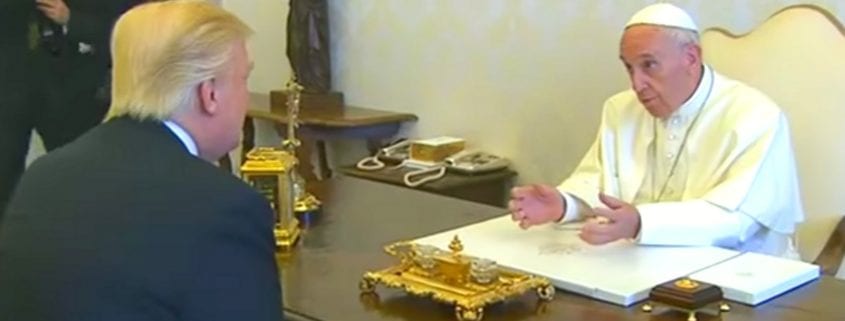
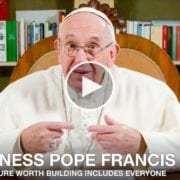
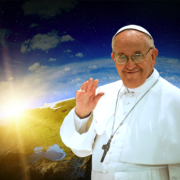
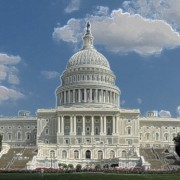
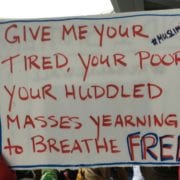

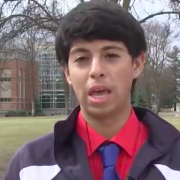

World leaders: Their actions, thoughts and words bring joy and hope to fellow humans across the Planet. May the leaders be blessed with health and stamina to serve fellow mortals, the environment and the Planet.